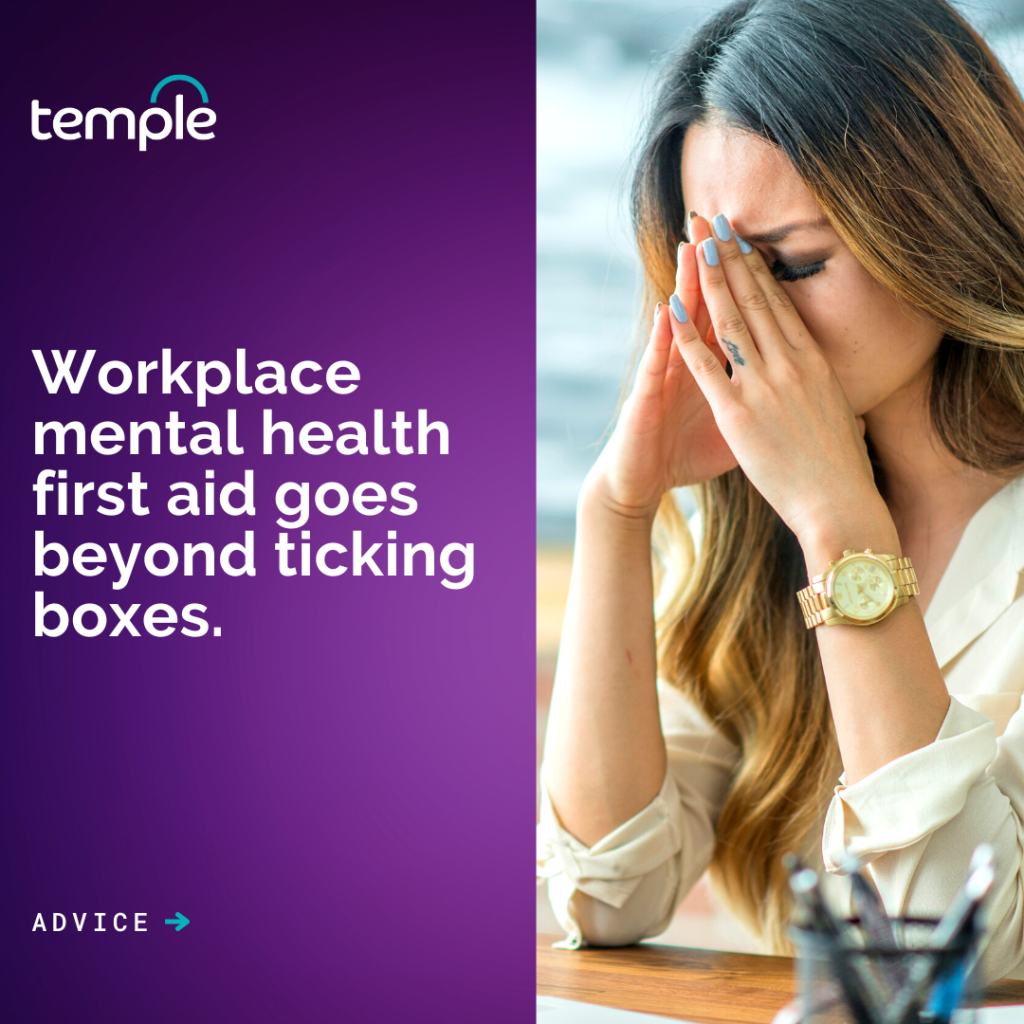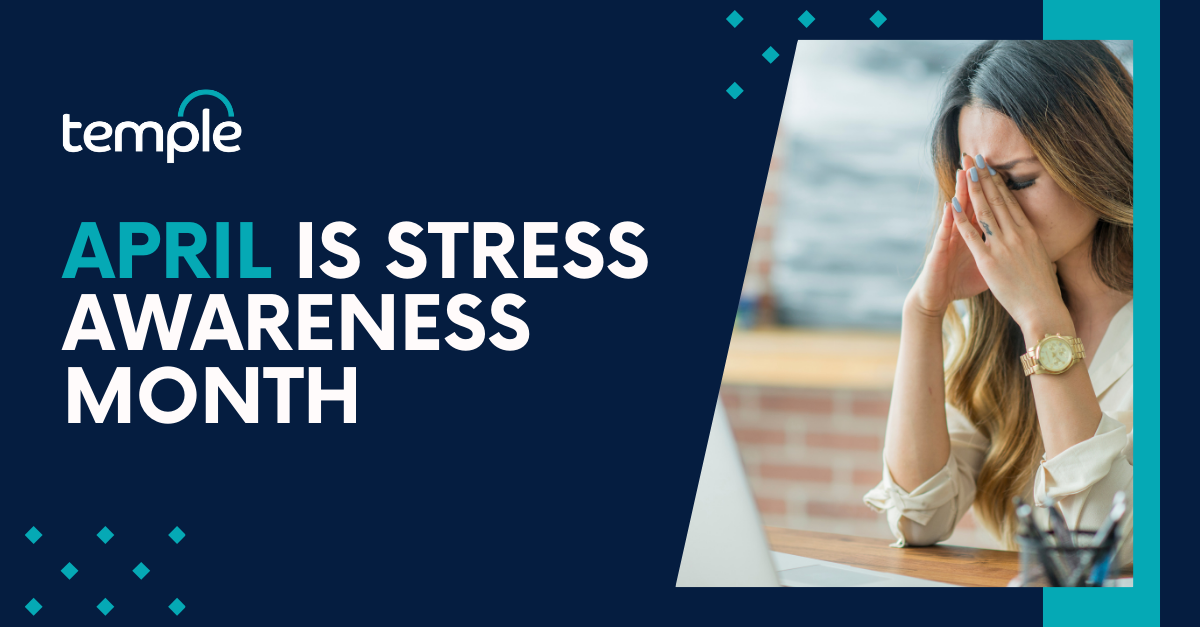
Up to £10k grant support available for Manufacturers in Shropshire
Temple QMS is delighted to be supporting the roll out of new grant funding in the Shropshire region. We will be supporting SME manufacturing businesses

It has been discussed for years whether mental health first aid should become a legal requirement in the workplace, but no policy has been implemented to date.
We all have been inspired to think about how to support employees and inspire effective change for the benefit of individuals across the country by this initiative.
The provision of mental health support has been shown to save businesses up to £8 billion a year, with 70 million workdays lost annually. Companies should include mental health first aid in their organisational culture with open arms, however, its introduction should not become a tick-box exercise.
Business leaders have had to adapt their support methods to cope with the introduction of remote and hybrid working over the years, especially for those who may be struggling mentally and emotionally.
Implementing mental health first aid: what to consider
Mental health first aiders do not fall under the HR department or senior management. Employees can approach them as the first point of contact when they have mental health concerns, and they can then direct them to appropriate resources, whether that’s through an organisation’s wellbeing program or Employee Assistance Programme (EAP), their GP, the NHS, or other recognised charity and third sector organisations.
For mental health first aid to be effective for the entire workforce, it must be easily accessible. In addition, mental health first aid provides the opportunity to explore and learn from outcomes for employees. By tracking the outcomes confidentially, organisations can develop a more structured approach to the mental health services they provide, and measure how effective and appropriate they are.
There should be no rush in the process, and businesses should also take advantage of the opportunity to train their staff in mental health first aid and up-skill them.
The responsibilities of a mental health first aider
Mental health first aiders have a responsibility to be aligned with the company’s overall business and wellbeing strategy and senior team, but they should also ensure they are a trusted port of call for any employee who needs their help and support. Some of their other responsibilities include:
The signs of mental illness and how to respond to them
● Workplace mental health first aiders are trained to recognise the symptoms and signs of mental ill-health.
● Holding supportive, professional conversations with a person who shows signs of mental health issues or emotional distress, along with listening non-judgmentally to them, is an essential component of the position.
Set boundaries and support employees when they need it
● First aiders should encourage the person to seek self-help strategies or professional support, and if necessary escalate the issue to an emergency service.
● They must also be aware of their limitations, set appropriate boundaries with employees, and avoid becoming crutches. When employees need mental health support or treatment, mental health first aiders must be able to assist them.
Employee protection and reducing stigma
Keeping confidentiality of the situation and the person while following first aid reporting requirements should be a priority for mental health first aiders. While performing their duties, mental health first aiders need to take care of their own mental health.
Mental health first aiders reduce the stigma attached to mental health in the workplace by providing support, education, and serving as role models.
A mental health first aider is not a therapist, psychiatrist, or counsellor, but he or she can be trained to offer initial support by enhancing their awareness of mental health, developing their skills in responding to people in distress, and ensuring that people have access to non-judgemental listening and guidance. Supporting those in need in the moment is more important than immediate intervention in mental health first aid.
If companies consider introducing mental health first aid, it’s important that it becomes a structured pillar of support for employees and is integrated with other mental health and well-being provisions. It is possible to create a ripple effect for other businesses to follow by providing positive outcomes for employees.
Temple QMS has launched a range of Mental Health courses in partnership with Stellar Mind. The training courses will be available online and classroom based, and provide training in a safe, inclusive learning environment and every Mental Health First Aid course is delivered by a qualified instructor that is accredited by the Royal Society for Public Health.
To view the training courses, go to the links below:
Online Mental Health First Aider Course
Adult MHFA 2 Day Classroom Mental Health Course
Adult MHFA 1 Day Classroom Mental Health Course
Adult Mental Health Aware Half Day
Online 4 hour Mental Health refresher course

Temple QMS is delighted to be supporting the roll out of new grant funding in the Shropshire region. We will be supporting SME manufacturing businesses

Global Compliance – Online event This presentation from Management Consultant Peter Lee, will be held 15 May 2024 – 19:00 – 19:45 CE and UKCA

Stress and poor mental health are one of the biggest public health challenges that we’re facing. Sadly, even though that is the case, we are

Sarah Dana, Director of Enterprise Software Sales for Northern Europe, Middle East and Africa at Rockwell Automation, shares her insights on the standout findings for UK